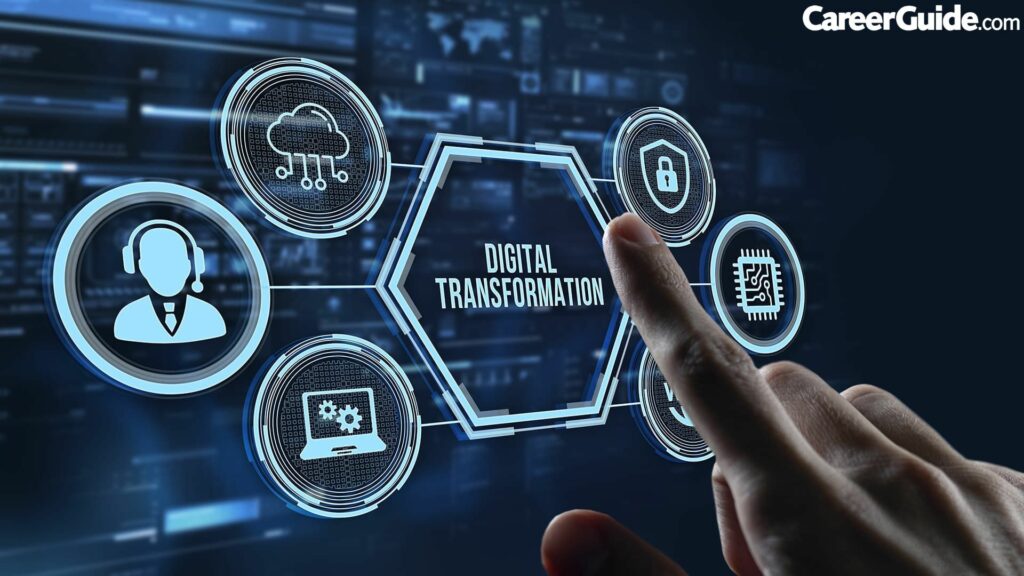With pacing technology and lifestyle changes, the norms of living have been highly affected. Changes are constant we always need to adapt to them we need to be prepared, change, and prosper. The change ensures that there is a safe space for every student to learn and they can all move together. Education trends are changing even faster. Education is the basic right of every child and it is important to understand the changing trends in the education system. Here are the all about the changing trends in the education system in India.
Education is the process of acquiring knowledge, skills, values, and attitudes through various forms of learning. It can take place in a variety of settings, including schools, universities, vocational training institutions, and online platforms. Education is crucial for personal development, socialization, and economic progress. Education can be divided into different levels, including primary, secondary, and tertiary education. Primary education is typically the first stage of formal education and usually starts at around age five or six.
Secondary education follows and typically includes middle school and high school. Tertiary education includes post-secondary education such as college, university, and vocational training. Education can also be categorized into various disciplines, such as science, technology, engineering, mathematics (STEM), humanities, social sciences, arts, and vocational training. Education is often viewed as a key factor in promoting social mobility, economic growth, and social cohesion. It provides individuals with the knowledge, skills, and attitudes necessary to participate in society and contribute to the common good.
Digitalization

The pandemic changed things for millions of children education has become based on digital platforms and digital communication. Digitalization is reshaping the education system. Digitalization in education refers to the use of digital technology to teach students. Digitalization in education means the use of desktop computers, mobile devices, the internet, and software applications to teach students.
Promote effective and engaging learning and a joyful experience that brings curiosity and critical thinking among children. By digitalization, any student sitting in any corner of the world can access the best teacher and good quality learning. Digitalization leads to learning can be customized as per the styles and pace of learning of each student. The teacher uses different modes to make the class more lively and interactive using game-based or visual learning modes.
Gamification
Gamification is arising in the learning environment, it helps students to learn and respond better it is a way of learning while playing games to understand better. The idea of turning learning objectives and works like assignment projects into awarded practical games. It makes learning more fun and engaging for students. They learn best when they have goals stated and achievements to reach for innovative learning. Learner perceives it as fun the features like video games used in education helps to intrigue children and get them hooked. Teachers try to make use of the technology in the best way possible gamification boost points, peer competition, teamwork, score tables, and drive to engagement.
Concept Learning
Concept-based learning means to think more rather than subject-specific content. It is a curriculum design to align critical thinking in students. Concept education develops an effective, approach and learning in children it empowers them to think independently and collaboratively. Helps them to engage and reflect in the learning process. Concept learning makes students think deeply and transfers knowledge.
It helps to develop key skills children think more critically. They analyses facts and engagingly consider implications. Concept-based learning brings out questions that go beyond learning and deepens students’ understanding of individual concepts it helps them to justify their own understanding. They sit and think beyond what they have learned it makes them more prepared for the future.
Non-Conventional Courses
The biggest trend in the shift of education is non-conventional courses as an economy we mostly focus on courses like doctors, lawyers, accountants, and engineers while there are many avenues like video editing, design thinking, fashion marketing, food and catering, data science artificial learning, etc. Non-conventional learning programmers include evening learning, distance learning, vocational studies, and skill-based courses, etc. It characterizes more on learning-oriented it has no fixed curriculum it is cost-effective and it is for improvement of quality.






